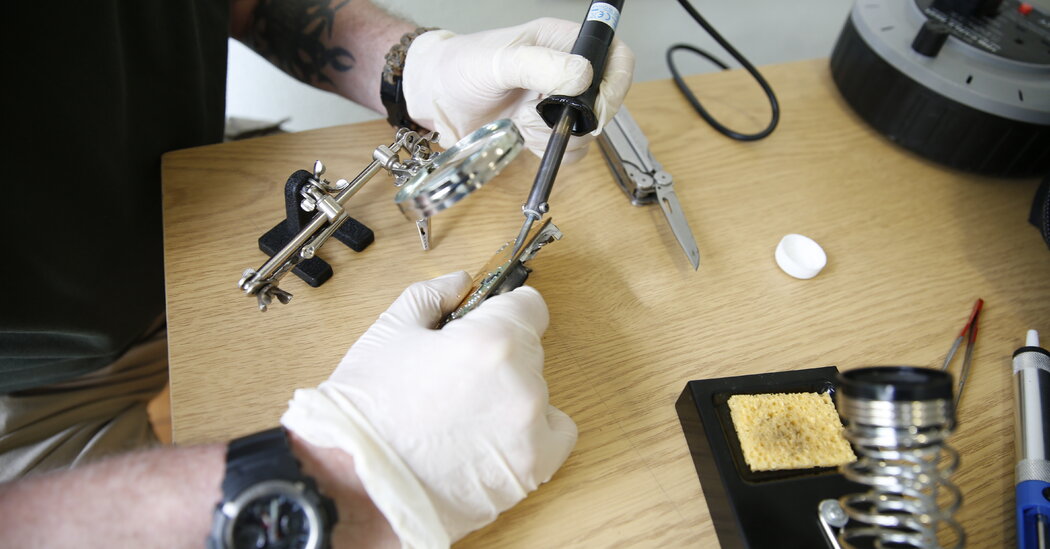
Technology restrictions have harmed other Russian industries as well, U.S. officials say. Equipment for the oil and gas industry has been degraded, maintenance for tractors and heavy equipment made by Caterpillar and John Deere has halted, and up to 70 percent of the commercial airplanes operated by Russian airlines, which no longer receive spare parts and maintenance from Airbus and Boeing, are grounded, officials say.
But some experts have sounded notes of caution. Michael Kofman, the director of Russia studies at CNA, a research institute in Arlington, Va., voiced skepticism about some claims that the export controls were forcing some tank factories and other defense companies in Russia to shutter.
“There’s not been much evidence to substantiate reports of problems in Russia’s defense sector,” he said. It was still too early in the war to expect meaningful supply chain problems in Russia’s defense industry, he said, and the sourcing for those early claims was unclear.
Maria Snegovaya, a visiting scholar at George Washington University who has studied sanctions on Russia, said the lack of critical technologies and maintenance was likely to start being felt widely across Russian industry in the fall, as companies run out of parts and supplies or need upkeep on equipment. She and other analysts said even the production of daily goods such as printer paper would be affected; Russian companies had bought the dye to turn the paper white from Western companies.
“We expect random disruptions in Russia’s production chains to manifest themselves more frequently,” Ms. Snegovaya said. “The question is: Are Russian companies able to find substitutes?”
U.S. officials say the Russian government and companies there have been looking for ways to get around the controls but have so far been largely unsuccessful. The Biden administration has threatened to penalize any company that helps Russia evade sanctions by cutting it off from access to U.S. technology.
The Russia-Ukraine War and the Global Economy
A far-reaching conflict. Russia’s invasion on Ukraine has had a ripple effect across the globe, adding to the stock market’s woes. The conflict has caused dizzying spikes in gas prices and product shortages, and is pushing Europe to reconsider its reliance on Russian energy sources.
In an interview last month, Ms. Raimondo said the United States was not seeing any systematic circumvention of the export controls by any country, including China, which aligned itself with Russia before and during the invasion of Ukraine. Companies were making independent decisions not to engage with Russia, even though the country was “trying very hard to get around” the global coalition of allies that had imposed export controls, Ms. Raimondo said.




